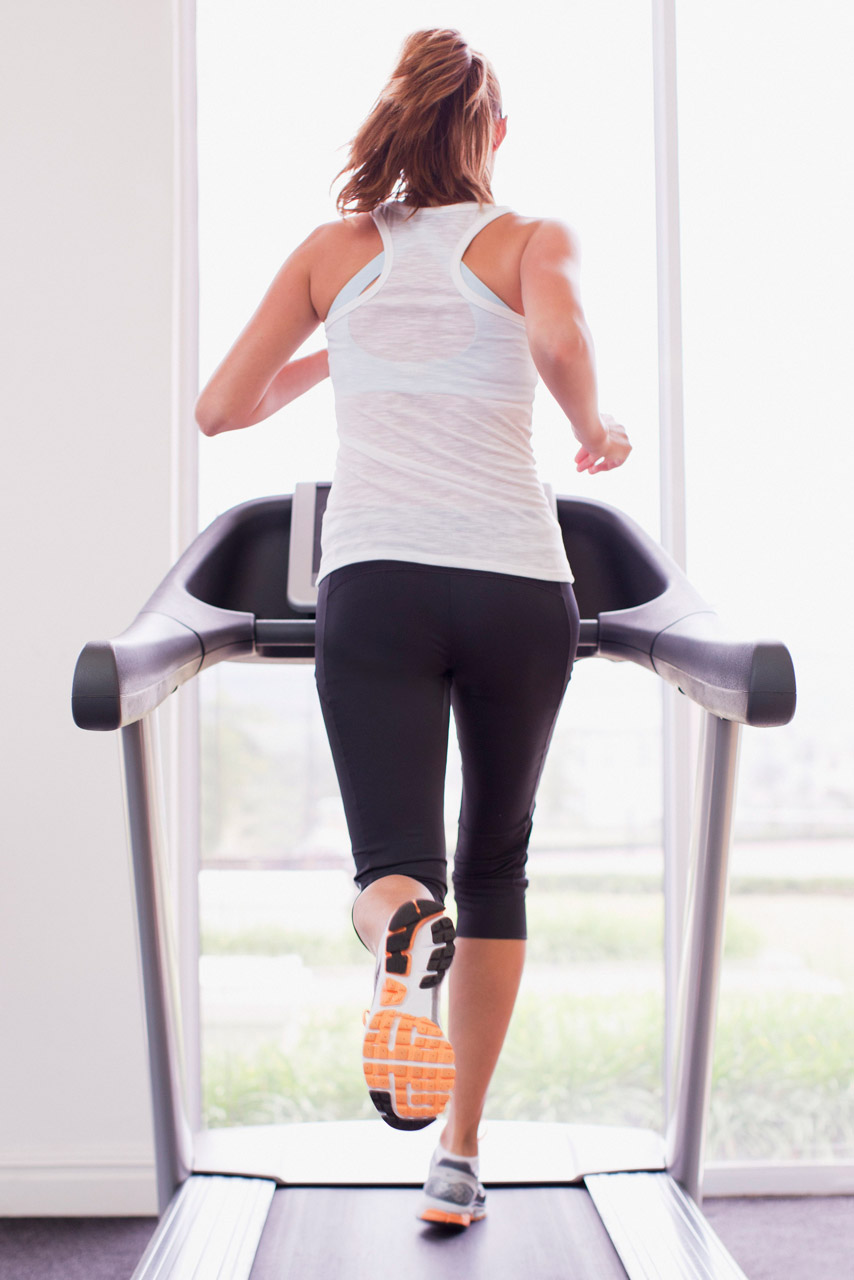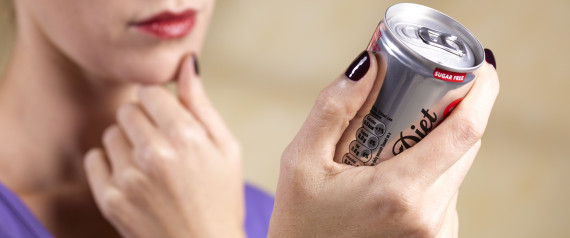
Wake up, sunshine! Getting exposure to light in the morning will not only help you wake up, but may help keep you slim, suggests research from Northwestern University. Happily, bright light (the sun is the best) sets your body clock, a key player in regulating every system of your body, including a speedy—or sluggish—metabolism.
7:30 am: Turn up the intensity

If you're going to the gym, you might as well get as much out of it as you can, right? Research has shown that a vigorous workout can help you burn almost 200 calories more in the 14 hours after the session, according to a small 2011 study. Later studies show a smaller afterburner during intense interval workouts (about 60 additional calories in the hour after exercise), but that can still make a big difference over time. Don't have time for a lengthy workout? Alternate 60 seconds of fast running, biking, or on the elliptical with a 60 second rest period, and repeat for 25 minutes, suggests the American College of Sports Medicine, and you'll still torch calories after you leave the gym.
8:30 am: Add protein
If your breakfast is a bagel with cream cheese or a muffin and coffee, you may want to make a switch to higher protein eats. When overweight young adult women ate a higher protein breakfast (one that contained around 30 grams of protein, versus one that contained around 12 grams), they had better glycemic control throughout the entire day, reports research in the European Journal of Clinical Nutrition. Go for eggs and Greek yogurt, which are both protein powerhouses.
9 am: Switch to tea
You might be hooked on java, but the other brew (tea, that is) has been shown to help your body burn about 100 additional calories over the course of the day, and torch more fat compared to a placebo, reveals a 2011 meta analysis. It may be the combo of both the catechins (healthful antioxidants) in tea and caffeine that revs metabolism.
10 am: Stand while you take the call

Skip taking a seat and get on your feet! Young adults who did work while sitting versus standing burned more calories, shows a 2012 study in theJournal of Physical Activity & Health. At rest, they burned 1.02 calories per minute, compared to 1.36 calories per minute while standing. To put that into perspective, an hour of on-your-feet phone calls burns 82 calories versus 61 sitting. Sure, it doesn't sound like much, but added up over the course of the day, it matters.
12 pm: Skip the diet soda

It may have zero calories, but drinking artificially sweetened beverages may negatively affect the body's normal metabolic response to sugar, notes a study in Trends in Endocrinology & Metabolism. Not everyone agrees, but diet drinks have been linked with weight gain and metabolic syndrome, a cluster of risk factors that increase heart disease and diabetes risk, including high blood sugar and increased belly fat.
3 pm: Nibble on chocolate

That's not license to maul the candy bowl on your coworker's desk, but it won't hurt to grab a couple of squares of good-quality dark chocolate. In a study by Swiss and German researchers, participants ate about 1.5 ounces of dark chocolate daily for two weeks. Compared to a control group, those who ate the sweets had lower stress hormone levels and a more regulated metabolism. Why? Stress can cause sputtery fat burning engines. It may be the chemicals in cocoa, like flavonoids, that play a role in regulating metabolism.
5 pm: Have a laugh

The day is just about over, lighten up a little, will ya? Find that hilarious colleague of yours to walk out the door with or call up your pal who makes you chuckle. Laughing is like a workout—as few as 10 minutes of giggles helps you burn 10 to 20% more calories than when you're stone-faced. That's enough to torch 10 to 40 calories. It may not sound like a lot, but think about what you get out of it: Research also shows that laughing can help keep your heart healthy.
8 pm: Bust stress
No matter what simmers you down—a good book, a celeb magazine, sex, watching a three-minute clip of dogs being cute, savasana on your floor—do it. According to 2014 research, women who were more stressed had a slower metabolism and burned less fat after eating compared to those who were stress-free—a difference of about 100 calories. Ultimately, the researchers note, frazzled living could promote weight gain.
10 pm: Wind down

Your to-do list might still be calling, but it's time to prep your body and mind for bed. That's because skimping on sleep makes a mess of your metabolism, suggests a small 2012 study in the American Journal of Physiology. Adults who slept for nine hours had healthier metabolisms, fewer cravings for sweet and salty fare, and less hunger compared to those who shorted their sleep to four hours. Conking out does a body good.











No comments:
Post a Comment